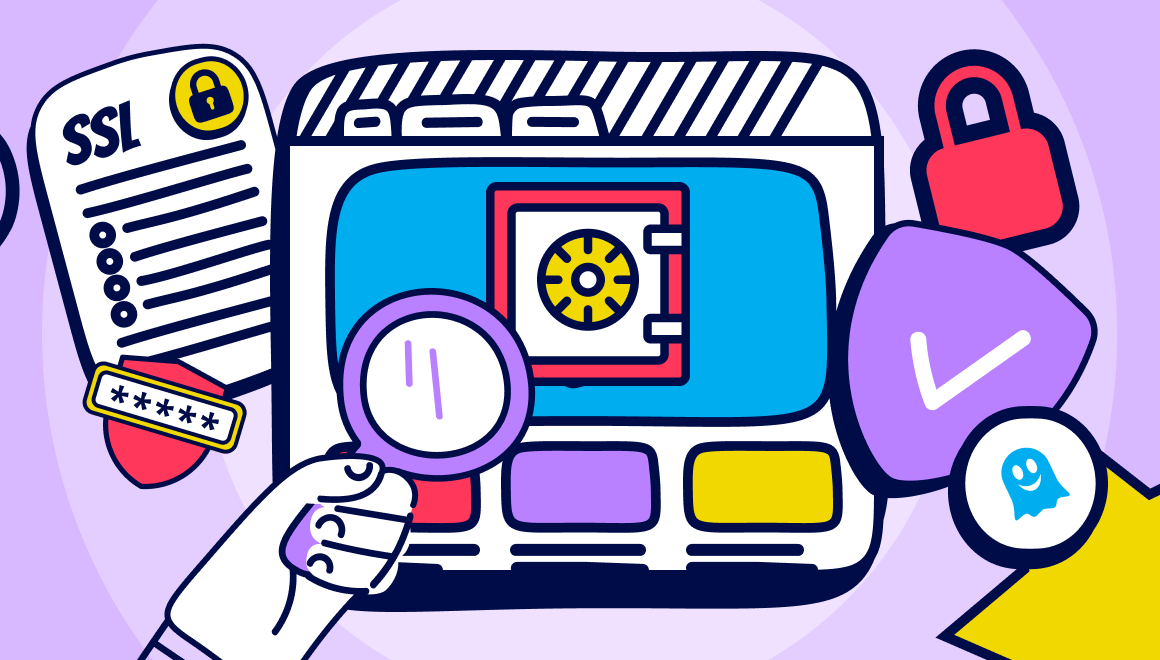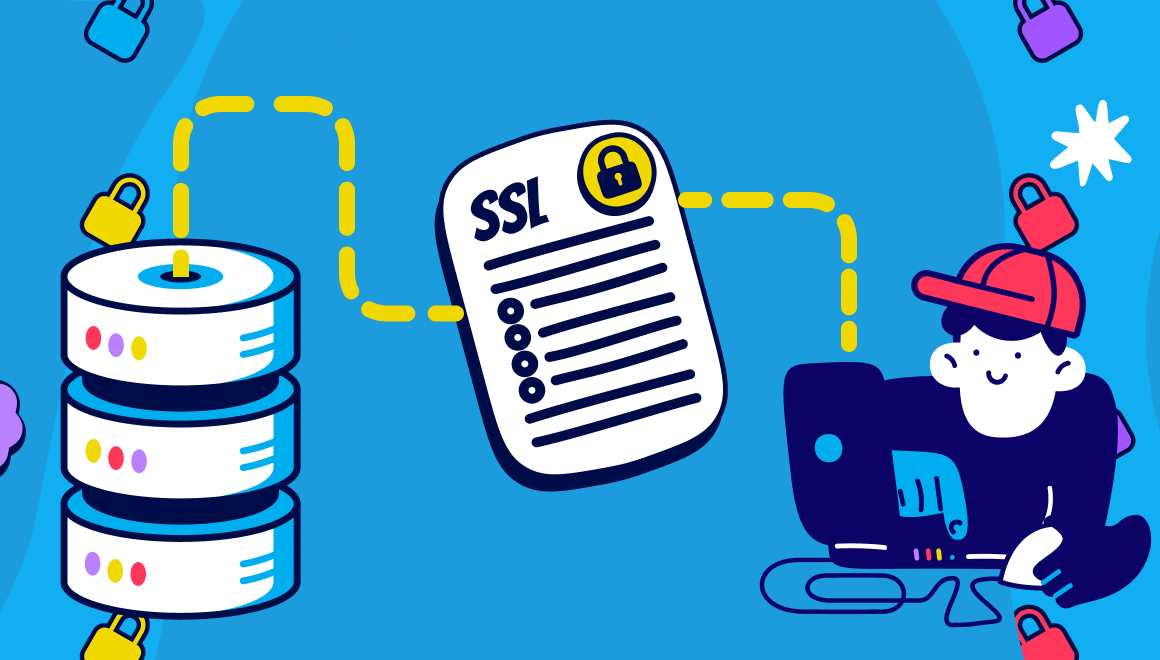Guide
The Ultimate Anti-Tracking Guide for 2024
Key Points:
- Internet tracking is the practice of collecting and analyzing your online data by various parties for various purposes, which can affect your privacy and security.
- Ghostery is a browser extension that helps you prevent internet tracking and improve your online experience by letting you see and block the trackers that follow you around the web.
- Learn how to avoid being tracked on the internet, such as using a VPN, a private browser, or a search engine that does not track you.
The Ultimate Anti-Tracking Guide for 2024
The internet is a wonderful place to explore, learn, communicate, and create. But it also comes with a dark side: internet tracking. Internet tracking is the practice of collecting and analyzing your online behavior, preferences, interests, and personal information by various parties. These parties can include internet service providers (ISPs), advertisers, big companies like Google and Facebook, and even governments.
We will explain everything you need to know about internet tracking and how to prevent it. By the end, you will have a better understanding of internet tracking and its implications, and you will be able to take action to protect your online privacy.
Understanding Internet Tracking
Before we dive into how to prevent internet tracking, let’s first understand what it is and how it works.
What is Internet Tracking?
Internet tracking is the process of collecting and analyzing data about your online activity, behavior, preferences, interests, and personal information. This data can include the:
- websites you visit
- links you click
- searches you make
- products you buy
- content you view
- comments you post
It also includes the:
- emails you send
- social media accounts you use
- location you access the internet from
- device you use to browse the web
- browser settings you have
Internet tracking can be done by various parties for various purposes. Some of them are legitimate and beneficial, such as providing you with relevant content, improving user experience, or enhancing security. Others are intrusive and harmful, such as invading your privacy, stealing your identity, or manipulating your behavior.
Cookies
One of the most common methods of internet tracking is cookies. Cookies are small files that websites store on your browser to remember your settings, preferences, and choices. They can make your online experience more convenient and enjoyable, but they can also be used for internet tracking by third parties without your consent or knowledge.
Third-party cookies are set by domains other than the one you are visiting and can reveal your personal information to data collectors. They can also affect your online experience by cluttering your browser with unwanted ads, slowing down your loading speed, or consuming your bandwidth.
IP Address Tracking
Another common method of internet tracking is IP address tracking. IP address stands for Internet Protocol address, which is a unique identifier that every device connected to the internet has. Websites or servers that receive requests from your device log your IP address along with other data when you access the internet.
IP address tracking can be used for various purposes, some of which are legitimate and beneficial, such as:
- Providing you with content or services that are relevant to your location, such as local news, weather, or currency.
- Enhancing security by detecting and preventing malicious attacks, fraud, or abuse.
- Improving performance by optimizing the delivery of data or content based on your network conditions.
However, IP address tracking can also be used for internet tracking by third parties. Third-party IP address tracking is when your IP address is collected and analyzed by parties other than the ones you are visiting or using.
Your IP address can reveal information, including:
- approximate location (country, city, region)
- internet service provider (ISP)
- device type (desktop, laptop, smartphone)
- operating system (Windows, Mac, Android)
- browser type (Chrome, Safari, Edge, Firefox)
This can compromise your privacy by exposing your location and identity to strangers. It can also affect your online experience by limiting your access to certain content or services based on your location, such as geo-blocking or censorship. And it can undermine your civil rights by enabling mass surveillance, profiling, or discrimination based on your IP address.
Who is Tracking You?
Now that we know what internet tracking is and how it works, let’s see who is tracking you and why.
Internet Service Providers (ISP)
Your internet service provider (ISP) is the company that provides you with access to the internet.
Your ISP can use internet tracking for various reasons, some of which are legitimate and beneficial, such as:
- Providing you with better service and support.
- Managing network congestion and traffic.
- Detecting and preventing network issues or security threats.
- Complying with legal obligations or requests.
However, your ISP can also use internet tracking for intrusive and harmful purposes, such as:
- Selling your data to third parties, such as advertisers, marketers, or data brokers.
- Showing you targeted ads based on your online behavior.
- Throttling or blocking your access to certain websites or services based on your online activity.
Companies and Corporations
Large corporations operate multiple websites, apps, and services that millions of people use every day. Examples of such companies are Google, Facebook, Amazon, Microsoft, Apple, Netflix, etc.
Companies can track you by using cookies, IP address tracking, fingerprinting, or other methods to collect and analyze your data across services. For example,
- Google can track you across any website that uses Google Analytics, Google Adsense, Google Fonts, Google Maps, YouTube, etc.
- Facebook can track you across any website that has a Facebook Like button, Facebook Share button, Facebook Login button, Facebook Pixel, Instagram, WhatsApp, etc.
- Amazon can track you across any website that has an Amazon Affiliate link, Amazon Pay button, Amazon Web Services, Kindle or Audible offers, etc.
Big companies can use internet tracking for various reasons, some of which are legitimate and beneficial, such as:
- Providing you with personalized content, recommendations, or offers based on your interests and preferences.
- Improving user experience, functionality, or quality of their products or services.
- Enhancing security by detecting and preventing fraud, abuse, or unauthorized access.
However, big companies can also use internet tracking for intrusive and harmful purposes, such as:
- Selling your data to third parties, such as advertisers, marketers, or data brokers.
- Showing you targeted ads based on your online behavior.
- Influencing your decisions or opinions by showing you biased or manipulated information.
Advertisers
Advertisers are companies that promote products, services, or brands to potential customers through various channels. Some examples of advertisers are Coca-Cola, Nike, McDonald’s, Apple, etc.
Advertisers can track what you do online through:
- some of the ads you see
- ads you click
- websites you visit
- products you buy
- content you view
- content you dismiss or click away from
Advertisers can track you by using cookies, IP address tracking, fingerprinting, or other methods to collect and analyze your data across different websites, apps, platforms, or services that display their ads. Advertisers can also track you across other channels, such as email, phone, or physical stores, by linking your online data with your offline data.
Advertisers can use internet activity tracking for various reasons, such as:
- Providing you with relevant ads that match your interests and needs.
- Measuring the effectiveness and performance of their ads and campaigns.
- Improving the quality and design of their products or services.
- Enhancing customer satisfaction and loyalty.
However, advertisers can also use internet tracking for intrusive and harmful purposes, like:
- Selling your data to third parties, such as data brokers or other advertisers.
- Showing you excessive or annoying ads that interfere with your online experience.
- Influencing your decisions or opinions by showing you misleading or deceptive information.
- Profiling you based on your personal characteristics, such as income, education, health, geographic origin, sexual orientation, etc.
Why Are You Being Tracked?
Now that we know who is tracking you and how they do it, let’s see why they are tracking you and what they gain from it.
Targeted Advertising
One of the main reasons why you are being tracked online is targeted advertising. Targeted advertising is the practice of showing you ads that are tailored to your online behavior, preferences, interests, and personal information.
Targeted advertising can be beneficial for both advertisers and consumers. For advertisers, this can:
- Increase the click-through rate (CTR) and conversion rate (CR) of their ads.
- Reduce the cost per impression/view (CPI) and cost per action (CPA) of their ads.
- Enhance the brand awareness and reputation of their products or services.
- Improve the customer relationship and retention of their products or services.
For consumers, targeted advertising can:
- Provide them with relevant and useful ads that match their interests and needs.
- Save them time and effort by filtering out irrelevant and unwanted ads.
- Offer them discounts, deals, or rewards for their purchases or actions.
However, targeted advertising violates the privacy and consent of consumers by collecting and using their data without their knowledge or permission.
Data Collection and Selling
Another reason why you are being tracked online is data collection and selling. Data collection and selling is the practice of gathering and analyzing your online data and selling it to third parties, such as data brokers, other advertisers, or other companies.
Data collection and selling can be done by various parties, such as ISPs, big tech companies, or advertisers. These parties can collect and sell your data for various purposes, such as:
- Marketing or advertising: Data brokers or other advertisers can use your data to create targeted ads or personalized offers for you or other consumers.
- Research: Other companies can use your data to conduct research or analysis on various topics, such as consumer behavior, market trends, social issues, etc.
- Product development: Other companies can use your data to develop new or improved products or services that cater to your needs or preferences.
However, data collection and selling can also have negative consequences for you and other consumers. Data collection and selling can compromise your privacy and security by exposing your personal information to hackers and cybercriminals.
Surveillance
Another reason why you are being tracked online is surveillance. Surveillance is the practice of monitoring and recording your online activity, communication, or expression by various parties, such as governments, law enforcement agencies, corporations, hackers, activists, etc.
Surveillance can be done for various purposes, some of which are legitimate and beneficial, and some which are intrusive and harmful.
Manipulation
Manipulation is the act of influencing or controlling your decisions or opinions by using deceptive or persuasive techniques. Manipulation can occur when your data is used by advertisers, marketers, or other companies to show you:
- targeted ads or personalized offers that appeal to your interests or needs
- biased or manipulated information that shapes your views or beliefs
- propaganda or misinformation that sways your votes or actions
A real life example of manipulation occurred with the Russian interference in the 2016 United States elections.
Benefits of Tracking Prevention
Tracking prevention can help you avoid the risks associated with internet user tracking and improve your online experience.
Enhanced Privacy
Online privacy is the state of having more control and protection over your personal information and how it is used. Having privacy online includes minimizing data that is:
- collected and analyzed by third parties without your permission
- sold or shared with third parties without your consent
- exposed to hackers, identity thieves, or cybercriminals
Having privacy online can have positive consequences for you, such as:
- Regaining control over your personal information and how it is used
- Protecting sensitive information that can harm you physically, emotionally, or financially
See also: I have nothing to hide. Why should I care about my privacy?
Reduced Targeted Ads
Reduced targeted ads includes having fewer or no ads that are tailored to your online behavior, preferences, interests, and personal information. Using an ad blocker to block targeted ads can prevent companies and groups from showing biased or manipulated information, and not seeing products or services you don’t need or want.
Protection from Cyber Threats
Cybersecurity protection includes having less exposure to hackers, identity thieves, and cybercriminals who can harm you online. Ad blocking and tracking prevention tools can help stop malicious ads (malware disguised as an ad).
Prevent Internet Tracking with Ghostery
Now that we know why we need to prevent internet tracking and how it can benefit us, let’s see how we can do it with Ghostery.
Ghostery is a browser extension that helps you control who can access your data and how they can use it. Ghostery lets you see and block the trackers that follow you around the web.
Features
Ghostery uses a combination of technologies to prevent internet tracking and improve your online experience.
Tracker Panel
The Tracker Panel provides an interface that shows you all the trackers that are active on the website you are visiting. Ghostery scans the web to display the trackers lurking behind websites.
Tracker Database
Ghostery’s tracker database, WhoTracks.Me, contains information about thousands of trackers that are active on the web. It used to identify and block trackers on websites you visit. The tracker library is updated regularly by the Ghostery team and with the help of its community.
Tracker Blocker
Anti-Tracking Protection is a component that blocks trackers. This tracker blocker feature uses WhoTracks.Me to match the trackers on websites you visit with the ones in the database.
Anti-tracking protection uses various methods to prevent internet tracking, such as:
- Cookie Protection: This method blocks cookies that are used for internet tracking by third parties. Cookies are small files that websites store on your browser when you visit them. Cookies can store information such as your login credentials, shopping cart items, browsing history, preferences, or other data that websites use to recognize you and customize your experience.
- Fingerprint Protection: This method prevents fingerprinting that is used for internet tracking by third parties. Fingerprinting is a technique that identifies you based on your browser settings, such as screen resolution, font size, language preference, plugins installed, etc.
Ad Blocking
Ad blocking can help prevent online tracking by not only blocking intrusive ads but also disabling tracking cookies and scripts.
Cookie Pop-Up Handler
Ghostery chooses the optimal privacy settings for cookie pop-ups and tracking on websites with the power of Never Consent. It removes annoying consent banners and tells website owners that you don’t want to be tracked online.
Installing Ghostery
Here’s how to download our extension:
- Go to our website and click on Get Ghostery.
- In the new tab that opens, select Enable Ghostery.
- Pin the extension in your toolbar.
- Enjoy an ad-free browsing experience!
Other Tools to Avoid Being Tracked Online
Ghostery is a powerful tool that can help you prevent internet tracking and improve your online experience. However, Ghostery is not enough to protect you from all forms of internet tracking. There are other tips that you can follow to avoid being tracked online.
VPNs
To prevent ISP tracking, you can use a VPN (Virtual Private Network). A VPN is a service that creates a secure and encrypted connection between your device and a remote server. A VPN hides your IP address and encrypts your online traffic, making it impossible for your ISP or anyone else to see or intercept it.
Private Browsers
A private web browser, such as Ghostery Private Browser, offers a fast, private, and secure browsing experience. It blocks third-party data trackers, enhances page load speeds, and protects your online privacy.
Read more: What is the best browser for privacy?
Private Search Engines
Your search engine can track everything you search online, including the keywords you use, the results you click, the websites you visit, etc. Your search engine can use this data for various purposes, such as providing you with personalized results and improving user experience.
Stop big companies from tracking your searches: A private search engine like Ghostery Private Search does not track you or show targeted ads.
Final Thoughts
Trackers collect and analyze your online data by various companies. To prevent internet tracking and improve your online experience, you can use Ghostery.
Ghostery is a browser extension that helps you control who can access your data and how they can use it. Ghostery lets you see and block the trackers that follow you around the web.
Get in touch if you have questions. We’re always happy to help.


